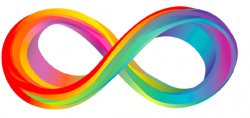The core idea of the Blue Envelope is straightforward yet impactful. It involves a specially designed envelope that holds a driver’s essential documents—license, registration, and a contact card. However, its significance goes beyond just a storage solution. The envelope features critical communication guidelines on its exterior, specifically tailored to assist non autistic law enforcement officers in recognizing and adapting their approach when interacting with autistic and otherwise neurodivergent drivers and community members. The Passaic County Prosecutor Camelia Valdes has spearheaded this initiative across the area and includes Montclair State University in all efforts.
Key Objectives
- Enhancing Understanding: By providing officers with immediate, accessible information about autistic and otherwise neurodivergent people, , the Blue Envelope aims to address the “double empathy problem”–recognizing that both parties experience difficulty in cross-neurotype communication and interaction, and that both parties share responsibility for learning to communicate and interact more effectively–, leading to more positive interactions.
- Reducing Anxiety: Traffic stops can be particularly stressful for individuals with autism. The Blue
Envelope serves as a visual cue that helps officers adjust their communication style, thereby
reducing anxiety for the driver. - Streamlining Communication: The guidelines on the envelope offer practical tips for officers, making it easier for them to communicate effectively with autistic and otherwise neurodivergent people, , even in high-stress situations like traffic stops.
- Encouraging Preparedness: For autistic and otherwise neurodivergent people and their families, the Blue Envelope is a tool that encourages preparedness. By keeping their important documents in the envelope and understanding how to present it during a stop, drivers can feel more confident and secure. For law enforcement officers, the Blue Envelope is a tool that provides simple and concrete guidance and reminders of the training they’ve received in engaging in effective cross-neurotype communication during traffic stops. This preparedness benefits all parties.
The Blue Envelope is more than just an envelope; it’s a symbol of our commitment to neuroinclusivity and cross-neurotype understanding.
It represents a step forward in ensuring that every driver can experience a sense of safety and respect on the road. Through this program, we aim to build bridges between law enforcement and the autistic community, fostering a culture of nondiscrimination and mutual respect that benefits everyone involved. For Blue Envelopes and more information visit University Police at Police Headquarters located next to the Red Hawk Deck or the Disability Resource Center, Cole Hall Room 331.
